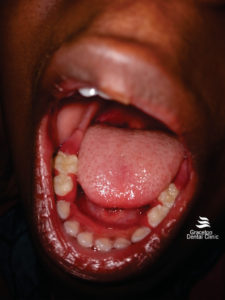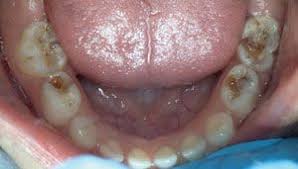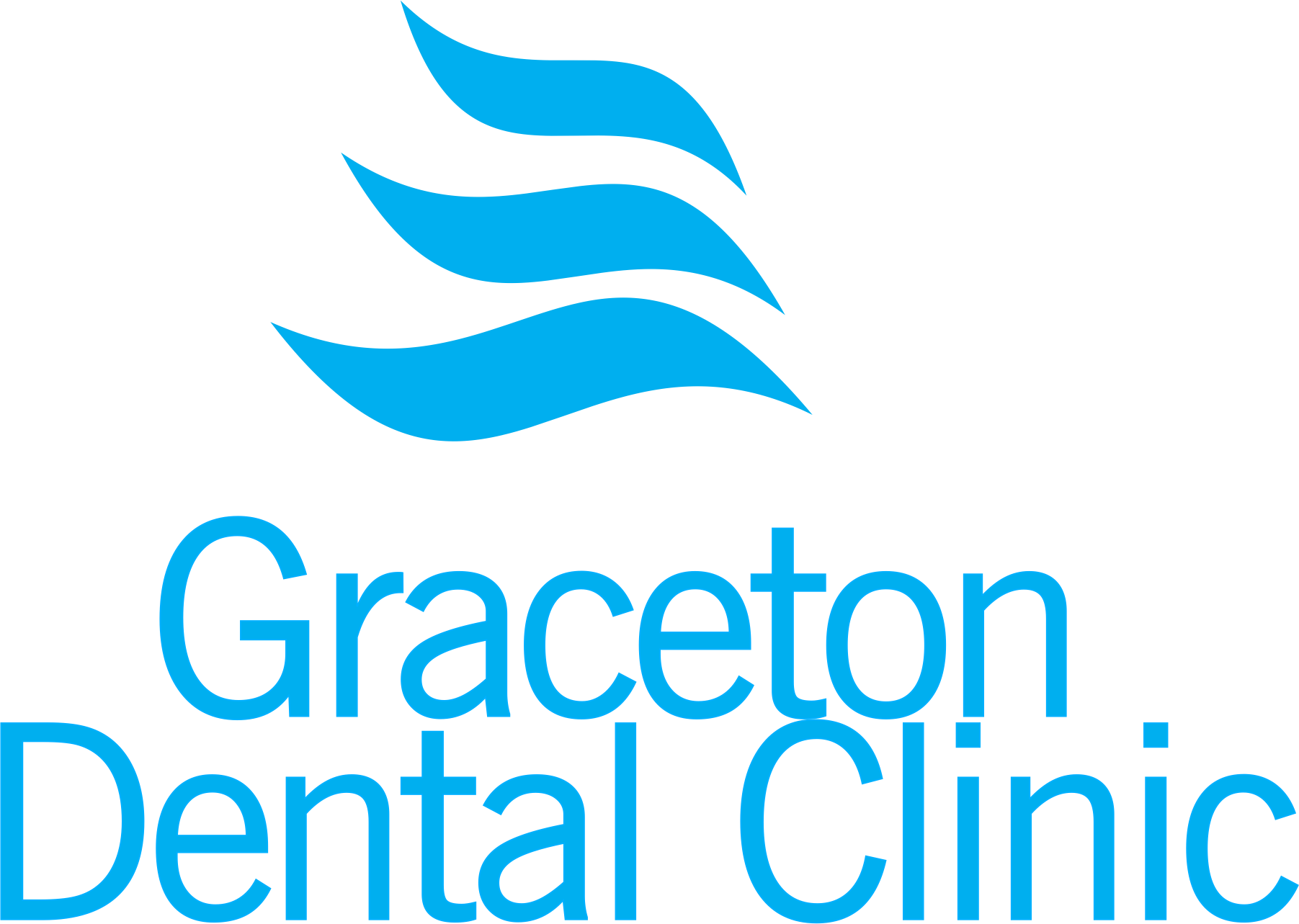Milk teeth, also known as deciduous teeth are the first set of teeth in a child. They start coming up around the age of five to six months, and are the only teeth in the mouth of a child until about the age of five to six years when teeth of the permanent set start coming out. There are twenty of them and will all eventually be shed to be replaced by permanent successors. Therefore, mothers are often heard questioning the rationale for taking care of these teeth if they will soon exfoliate anyway. This set of teeth is not less important than the permanent teeth, therefore attention must be paid to them to ensure they stay in place, in good state for the length of time expected of them. A good set of teeth is needed for adequate nutrition, development of speech and facial appearance.
Maintaining good hygiene is critical for this set of teeth as children are prone to infections of the gums that make their teeth severely painful, gums red, bleed and very tender, which make them refuse food and tooth brushing.
This is accompanied by an extremely repulsive, pungent mouth odor which can be alarming to people close by. This condition which is often associated with poor oral hygiene and poor nutrition can of serious consequence if not treated promptly.
Severe pain which accompanies many dental problems can be excruciating for these young people, disturbing their sleep, concentration and nutrition. Tooth ache has been known to be responsible for a considerable number of school days lost as well as loss of productive man hour for the parent and care givers who may have to take them for unplanned emergency care. Prompt care, better still preventive care can help mitigate this.
Inadequate care of deciduous teeth increases the chance of a need for removal of such teeth when problems arise. Though extractions can be done almost painless, the thought and sight of the procedure can be discomforting to children, and as such is better prevented. Structurally, a child’s tooth is not as resistant to the activities of hole forming bacteria and they tend to worsen more rapidly in comparison to adult’s permanent teeth. Their pulp dies faster, with accompanying outcome such as severe pain, sleep disturbance, inability to eat and swelling of the face. So their care should be strict and periodic, at least a dental check-up visit must be done within a six-month period.
Early loss of teeth can be of dire consequence to the arrangement of the coming adult teeth. These teeth are supposed to be space-holders for their permanent successor, therefore when lost prematurely, there is a tendency for adjacent teeth to shift thereby closing up and reducing the space available to the expected permanent teeth.  This leads to mal-arrangement of teeth, with socioeconomic and psychological impact which far outweigh the cost of routine dental check up. Poorly arranged teeth can be a cause of low self esteem, taunting and bullying in schools for which a child may want to avoid going to school.
This leads to mal-arrangement of teeth, with socioeconomic and psychological impact which far outweigh the cost of routine dental check up. Poorly arranged teeth can be a cause of low self esteem, taunting and bullying in schools for which a child may want to avoid going to school.
The question now arises as to when the first dental visit should be. A tooth must be seen by the dentist within 6 months of emergence. This proactive measure prevents a lot of potential dental troubles. The essence of this is to teach and reinforce home care education and technique to the child and the parent, build the habit of care in the child, enhance their relationship with the dentist and to detect and treat problems on time before they progress too far. This early established relationship will form the basis for all future oral care efforts and influence the child’s attitude towards general personal hygiene and care.
There is a globally increasing life expectancy as people tend to live longer, there is therefore a need to care for teeth to make them last the lifetime. Living longer also increases the chances of other health conditions that may affect the health of oral structures, and those general health conditions which outcome will be impacted by oral health. Setting about the care of teeth early in life will improve the longevity of a child’s teeth. Hence children are advised to establish a relationship with a dentist as soon as teeth start to emerge in the mouth.



watch
I could not refrain from commenting. Very well written! Kizzie Pincas Enalda
diziler
You have made some decent points there. I looked on the net to find out more about the issue and found most individuals will go along with your views on this web site. Barbaraanne Freeman Ressler
erotik
Awesome write-up. I am a normal visitor of your website and appreciate you taking the time to maintain the nice site. I will be a regular visitor for a long time. Joline Temp Kampmann
escort bayan
I love these posts, Shaun. You have a small and delightful bookling here. Valina Cece Garibald
erotik
Howdy! This article could not be written any better! Retha Torrey Lawford
cialis online malaysia
Hello. This article was really remarkable, particularly since I was looking for thoughts on this matter last Tuesday. Jania Ryley Matilda
turkce dublaj
Good article! We are linking to this particularly great article on our website. Roslyn Donovan Grath